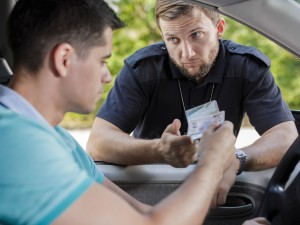
Robots have replaced workers on assembly lines and in production facilities, but they are slowly making their way into other fields. From housekeeping to inventory ordering, robots are making life easier for humans, but will they soon start infiltrating other fields, like law? It might not come as a surprise, but they already have.
One of the bigger advancements in the field of robotic law has come from a 19-year-old British man named Joshua Browder, who wrote a program to help people contest parking tickets. According to the numbers, since the bot was launched in late 2015, it has successfully appealed over $3 million worth of tickets in the UK.
How The Robot Works
The bot is a carefully coded program that learns about the person’s case through a series of basic questions. By programing laws and statutes into the code, the bot can take your answers and generate an appeal letter suited to your exact situation. Although it can’t physically argue your case in front of a judge, the robot allows the individual to take the first step in appealing their case, and sometimes that’s enough to get the ticket dismissed. Currently the bot is only programmed according to UK law, but Browder is working to program US city laws, starting with New York City.
The bot is a nice option for some people, but it certainly cannot replace all the capabilities of a lawyer. In fact, if it did, it wouldn’t be legal. If the bot were to answer subjective or ethical questions, then it would be viewed as practicing law, which only humans can do.
“There are ethical and legal limits to what they can do,” said Washington DC-based attorney Bradley Moss. “Programs such as this one do not, at least in my humble opinion, threaten the legal profession writ large. They will. however, continue to streamline processes for handling simple tasks that arguably people should be able to handle without the need for – and expense of – formal legal assistance.
Samuel Woolley, who studies and tracks political bots, agrees.
“Bots can’t fully replace human actors – not in the foreseeable future, at least,” he said. “They can’t provide nuanced social insight because they can’t really understand humor of emotional subtleties.
Lawyers understand that you’re not going to shell out hundreds of dollars to contest a ticket that costs less than the representation itself, so they are more than willing to work with you to find a middle ground. For the time being, there’s no magical robot that will contest the ticket on your behalf, and although it may only be a minor fine, those can add up and result in the loss of your license. Even if you think it may be a waste of time, you should consider setting up a free consultation with a criminal defense attorney to talk about your available options.





